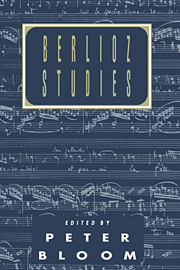Book contents
- Frontmatter
- Contents
- Preface
- List of abbreviations
- 1 The Reboul-Berlioz Collection
- 2 Berlioz and the metronome
- 3 Romeo and Juliet and Roméo et Juliette
- 4 In the shadows of Les Nuits d'été
- 5 Les Nuits d'été: cycle or collection?
- 6 ‘Ritter Berlioz’ in Germany
- 7 The Damnation of Faust: the perils of heroism in music
- 8 Berlioz's version of Gluck's Orphée
- 9 Overheard at Glimmerglass (‘Famous last words’)
- Index
8 - Berlioz's version of Gluck's Orphée
Published online by Cambridge University Press: 14 September 2009
- Frontmatter
- Contents
- Preface
- List of abbreviations
- 1 The Reboul-Berlioz Collection
- 2 Berlioz and the metronome
- 3 Romeo and Juliet and Roméo et Juliette
- 4 In the shadows of Les Nuits d'été
- 5 Les Nuits d'été: cycle or collection?
- 6 ‘Ritter Berlioz’ in Germany
- 7 The Damnation of Faust: the perils of heroism in music
- 8 Berlioz's version of Gluck's Orphée
- 9 Overheard at Glimmerglass (‘Famous last words’)
- Index
Summary
In chapter 5 of the Mémoires Berlioz tells us that it was Gluck who inspired him to become a musician, and that prior even to studying Gluck's music, he felt for the composer of Orphée a kind of ‘instinctive passion’. Before Gluck, Virgil had been the catalyst of Berlioz's extraordinary sensitivities. We might therefore say that the future composer's creativity was conditioned by two ‘poetic shocks’ which in a way revealed (to himself) his own inner predilections. It would not be long before Berlioz became aware of the Virgilian sources of the Orpheus myth, sources called to his attention by lines from Book IV of the Georgics cited in both early French and Italian editions of Orphée. Virgil and Gluck, for Berlioz, would forever remain the most original of geniuses; he would eventually glorify the former by making use of the ‘tragédie lyrique’ as modernised by the latter. Indeed, it should be emphasised that Berlioz was to revive Gluck's Orphée in 1859 just as he was completing Les Troyens, and that one particular contralto voice was to act as an inextricable link between these two works – namely the voice of Pauline Viardot. Such a constellation raises several questions: What were the respective roles played by Berlioz and the celebrated diva in the resurrection of Gluck's score?
- Type
- Chapter
- Information
- Berlioz Studies , pp. 189 - 253Publisher: Cambridge University PressPrint publication year: 1992
- 2
- Cited by



